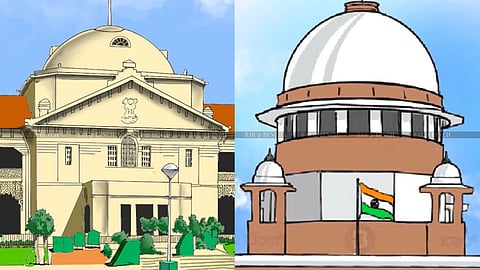
- Latest Legal News
- News
- Dealstreet
- Viewpoint
- Columns
- Interviews
- Law School
- Legal Jobs
- हिंदी
- ಕನ್ನಡ

The Supreme Court on August 6 expressed disappointment at an order passed by the Allahabad High Court in a case under the Protection of Children from Sexual Offences Act (POCSO Act) and said that the reasoning adopted by the High Court failed to apply binding legal principles [Aasif Pasha vs State of UP]